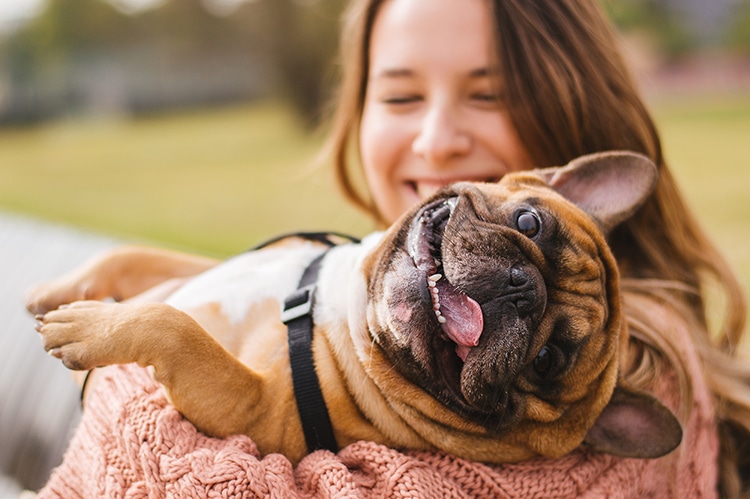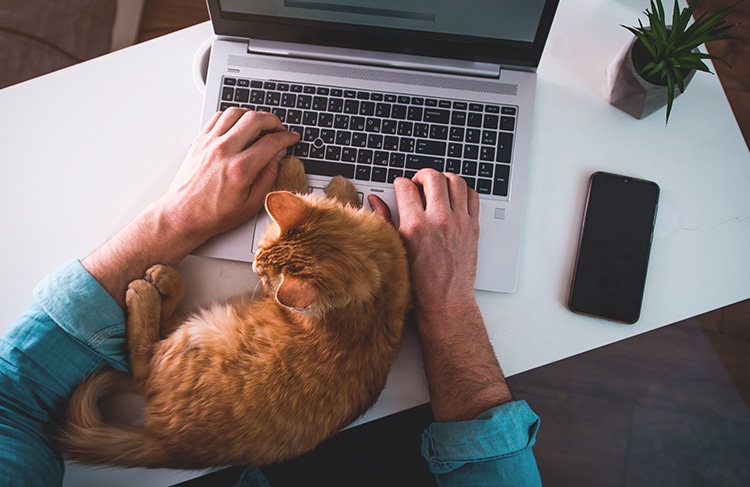
Photo: Stock Photos from BRANISLAV NENIN/Shutterstock
Pets’ roles as human companions has never been more important than in 2020. During this tough year, people around the world have faced the mental struggles of isolation. Touch—especially—has been hard to safely come by. In the absence of the ability to hug friends and family outside our bubbles, furry friends have stepped in to fill the void. A recent study published in the Journal of Behavioral Economics for Policy has demonstrated that this touch between pets and humans seems to be mutually beneficial—providing benefits such as comfort, relaxation, and reciprocity which are beneficial to both human and animal health. The authors from the University of South Australia hope that policymakers will take this information into account for the wellbeing of the elderly whose aging process can especially benefit from regular touch.
For the study, a team of researchers lead by health scientist Dr Janette Young interviewed 32 pet owners about their interactions with their critters during their pandemic. Australia, like other countries, saw a surge in pet purchases and adoptions at the beginning of lockdown. Of those interviewed for the study, 90 percent reported their pets brought them comfort and self-worth. Many anecdotal examples were given of pets “reading” their human’s emotions and snuggling close as support. This seeming empathy through touch was also thought by the researchers and their interviewees to be comforting to the animals themselves, who can feel stressed or upset, too. Such reciprocated touch seems to be important on both sides and was demonstrated by dogs, cats, reptiles, birds, and horses.
The paper stresses why this touch relationship is so important and how it can be used to improve quality of life in the future. Touch deprivation (also known as skin hunger) can result when the natural urge for human-to-human contact is not fulfilled. This is a longstanding problem for individuals in nursing homes and other institutional settings. However, the safety measures taken during the pandemic have caused this problem among the masses. Dr. Young stresses the importance of touch for the health of those in social isolation. She says in a statement, “Touch is an understudied sense, but existing evidence indicates it is crucial for growth, development and health, as well as reducing the levels of the stress hormone cortisol in the body. It is also thought that touch may be particularly important for older people as other senses decline.” The researchers hope their work on the health benefits of pets during a pandemic will be used in the future to improve quality of life for those in residential care.
We all have our furry friends to thank for helping keep our spirits up and for providing us their loving touch during this difficult time. To read the full report on the touch benefits of pets during a pandemic, you can find it on the Journal of Behavioral Economics for Policy website.
A new paper by health science researchers interviewed 32 pet owners on their experiences during the pandemic. They discovered a reciprocal relationship of touch and comfort which benefits both animal and human.

Photo: Stock Photos from SHAROMKA/Shutterstock
The team suggests their pets and touch study can help policymakers better serve the health and well-being of isolated communities such as those in residential care in the future.

Photo: Stock Photos from MIRJANA ZIDAR/Shutterstock
h/t: [IFL Science]
Related Articles:
New Study Finds That Dogs Can Help You Live Longer
NYC Is Running Out of Pets to Adopt as People Look for Fluffy Friends to Calm Their Nerves
Kind Veterinarian Travels Around California Treating Homeless People’s Pets For Free
